The future starts today, not tomorrow. Pope Francis
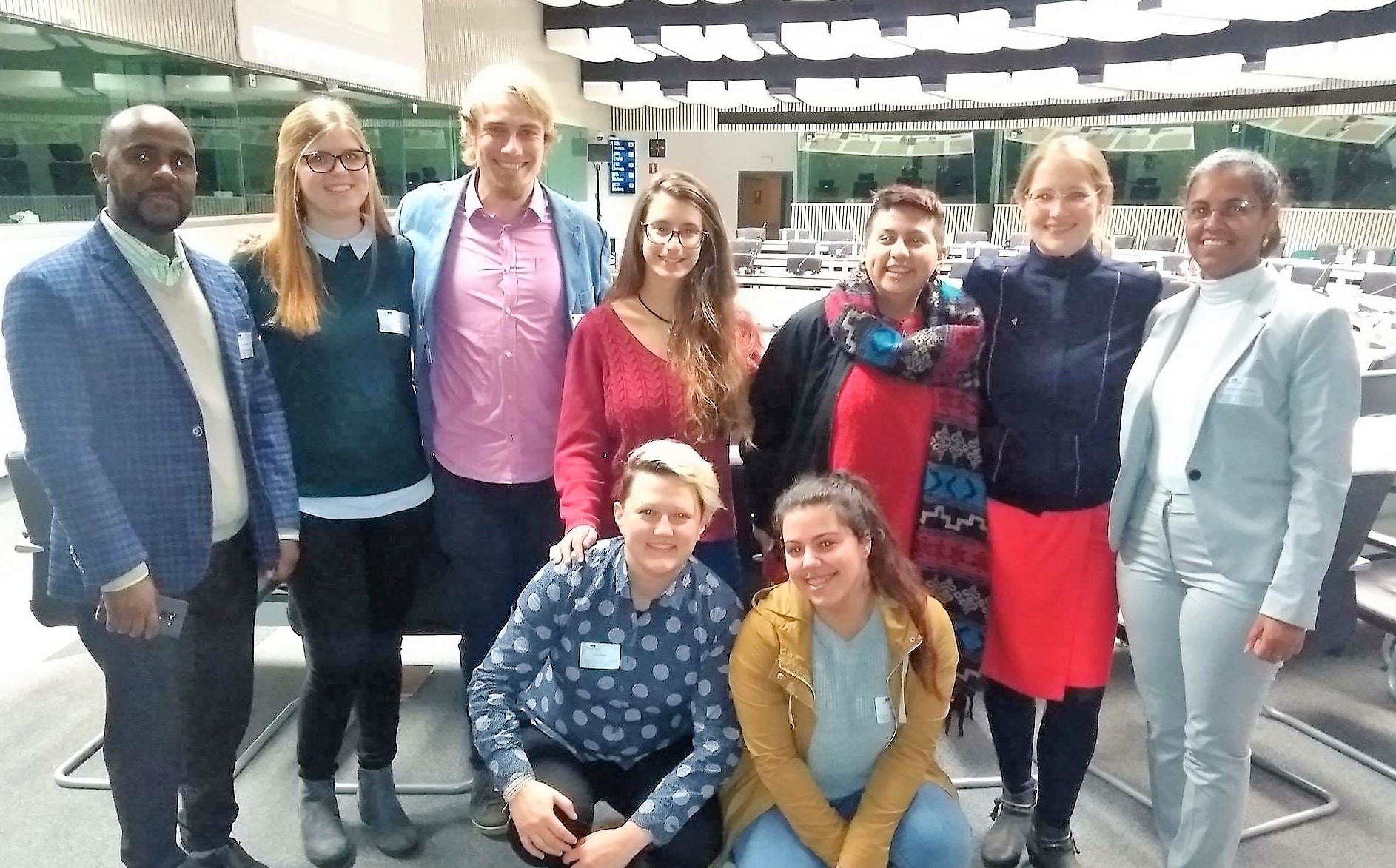
The Network of the Catholic Inspired Organizations, together with the Commission of the Bishops Conference of the European Union (COMECE), organized panel debates at the European Economic and Social Commission last November 27, 2018. The Conference discussed what the future of work looks like for the next generation in the midst of digitalization and robotization, as we know that the world of work is facing many transformative changes, accelerating globalization and the rise of artificial intelligence on the one hand, and ecological challenges and a rise in unemployment on the other hand.
Various panel experts underlined the importance of work from an inter-religious dialogue perspective, and John Harley of Eurofound presented a research on the issue of accessibility to work, unemployment, opportunities and threats. The statement of Ms. Sarah Prenger, the International President of the International Young Christian Workers (IYCW) who read testimonies and realities from many young workers in Europe, describing the challenges they face every day, was a good opportunity to confront those data and research.
Flexi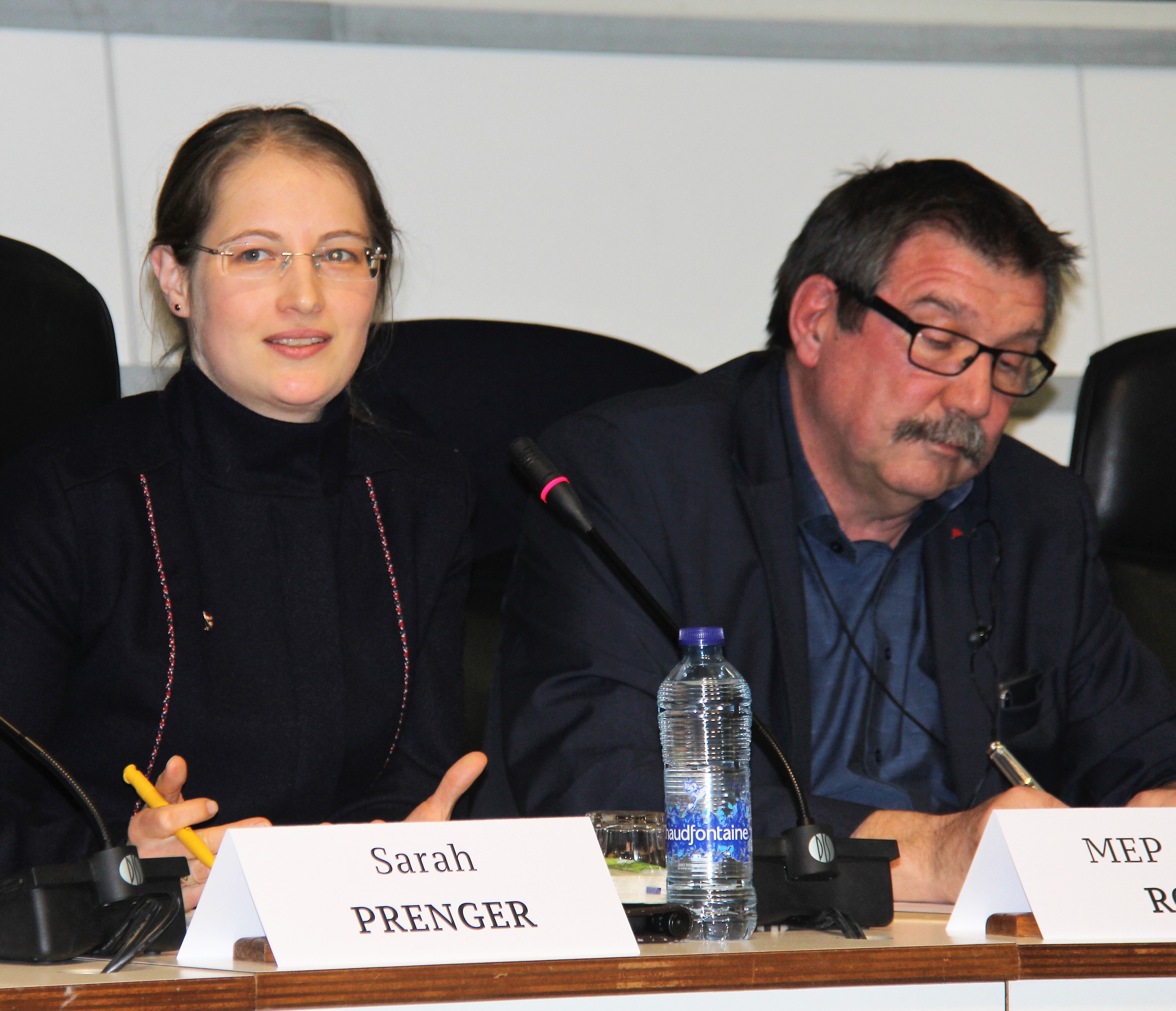 bilization needs to be clarified. “Flexible work” may sound nice, but for the YCW, flexibilization means short-term contracts in many different forms, from two-year contracts to 6-month contracts, to one-day contracts to zero-hour contracts. Direct employment is becoming a thing of the past due to the rise of temporary employment agencies.
bilization needs to be clarified. “Flexible work” may sound nice, but for the YCW, flexibilization means short-term contracts in many different forms, from two-year contracts to 6-month contracts, to one-day contracts to zero-hour contracts. Direct employment is becoming a thing of the past due to the rise of temporary employment agencies.
“We don’t need to go far”, Sarah Prenger said. “Only leaving this building, we might meet young people with day contracts. This is how it works, they call the agency in the evening in order to know if they have work the next day. If yes, then they have work for that day. Many young people in Europe are not even sure that they will get their salary correctly.”
Apart from flexibilization, another challenge is the failure to have one’s other rights respected. For instance, despite existing labor laws, the right to organize is sometimes denied or the minimum wage is not enforced. The consequences of these short-term working conditions for young workers prove to be similar throughout Europe and the whole world: no possibility to plan for the future, permanent feeling of insecurity with effects on socio-political commitments and the willingness to start a family, decreasing social security, impact on health, decline in consumption, as well as a clear loss of trust in democratic institutions and political parties.
The growing phenomenon of self-employment needs to be examined critically. Sometimes it just replaces employee relationships, meaning that the workers bear the burden of the risks and social security. We also need to look at the “gig” economy. These jobs do not often provide social protection, workers work at their own risk, they need to buy their equipment themselves, and are not secured at all. They seem to be self-employed, but actually the online platforms act as employers.
The digital economy can be a strategy to disguise the relevance of work for production or service. Labor relations are unclear, and it is difficult to see who the employer actually is. Likewise, the possibility to work at anytime from anywhere puts workers under pressure.
“We talked about the relevance of social dialogue here”, Ms. Prenger continued. “However, both in short term contracts and in “fake” self-employment work, it is very hard to promote social dialogue. How can they shape their workplace if they are there only one day or if their employer is the temporary work agency?”
The working conditions mentioned above are in great contradiction with the values of work defined by other panelists. Work as defined is more than a way to make a living. It is an integral part of human identity and defines collective role in the society. From the perspective of the Catholic Social Teaching, work should enable the human person to find full participation in the creation of society, allowing workers to have their individual dignity recognized, enabling personal development and building community relationships with others. Work is collective in nature, not on an individual basis. It is dreadful that it is becoming more and more individual.
Given the importance of work, it is necessary to shape the current development that is transforming the world of work to ensure that everyone and the society as a whole will benefit from this shift. The current trend of work flexibilization, unregulated forms of work and growing of work-life imbalance are clear indicators that action and clear regulations are needed.
Education and equipping young people to access work in the age of digitalization is not the sole solution for the growing unemployment problems. As we noted, there are many young people, especially in Europe, who are qualified for a job but do not find enough decent job opportunities.
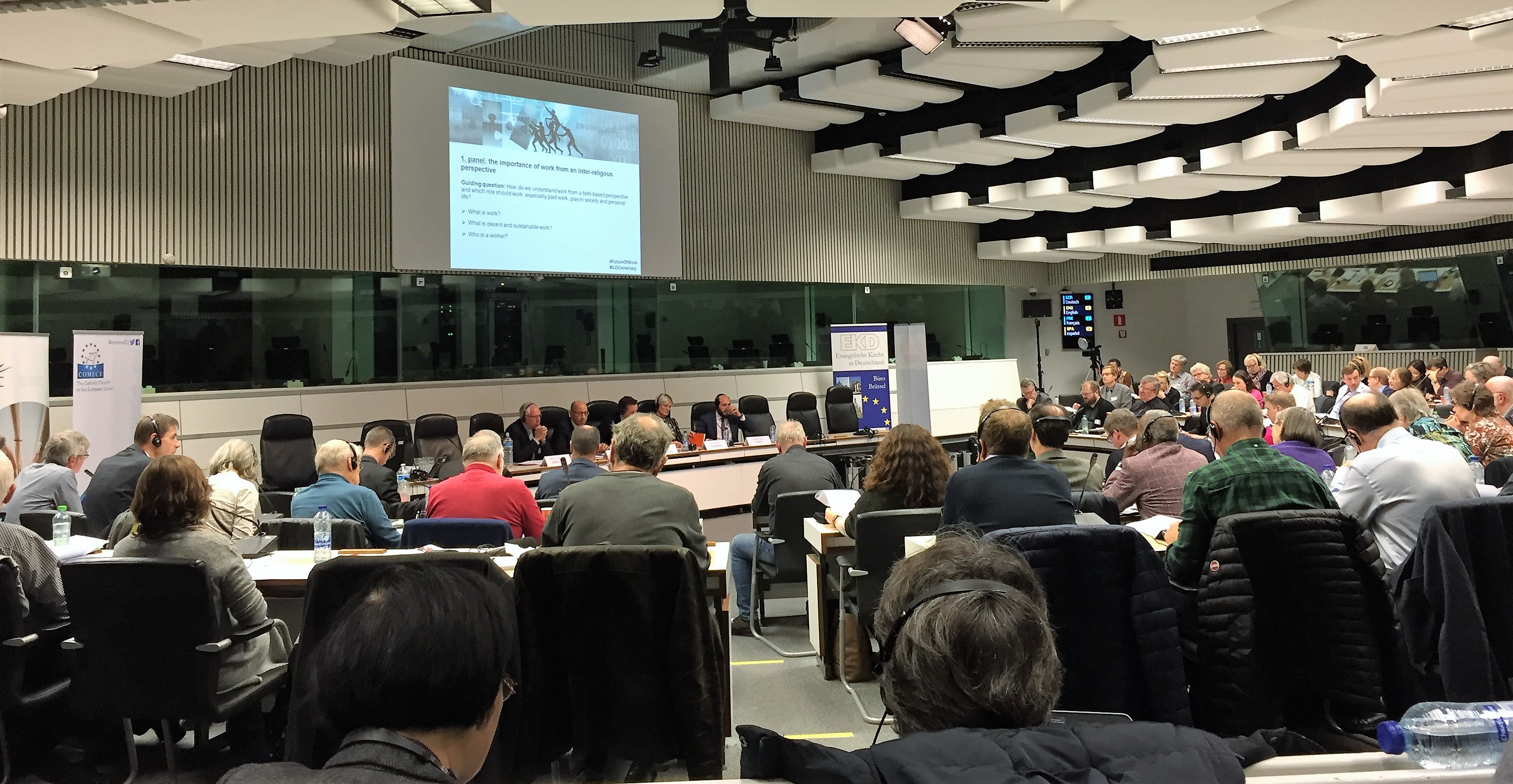
The IYCW is proposing the following actions to regulate the labor market:
• Take measures against short-term contracts. Temporary workers should earn the same decent wage and social protection as permanent workers.
• Reduction of working hours in order to guarantee more time for family life and participation in civil society as well as to tackle unemployment.
• Ensure a right to disconnect from work. We need to establish a culture of unavailability. Part of this must be to establish and protect Sunday as a free day all over Europe, especially in those sectors which are not crucial every day.
• Tax the “gig” economy and establish labor regulations for the digital world.
• Tax financial transactions and use the income for social protection for all.
• Guarantee real labor inspections. This means that states must invest in this aspect.
As globalization is being confronted by digitalization, fear is constantly growing among citizens. But one thing is clear among us as activists and as Christians: we have the values of faith and hope. We remain steadfast in the face of these challenges, and parallel to the centenary celebration of the foundation of the International Labor Organization (ILO), we uphold its constitution as we regard it as one of the most important social contracts in history, based on the following principles: “there is no peace without justice”, “leave no one behind”, “dignity and respect to every worker” and “work is not a commodity.”
We reiterate the campaign of the IYCW for Just Work for All, demanding full and productive employment, respect of fundamental rights, social protection and social dialogue. The only possible means is to place the human being at the center of the society, both with rights and responsibility

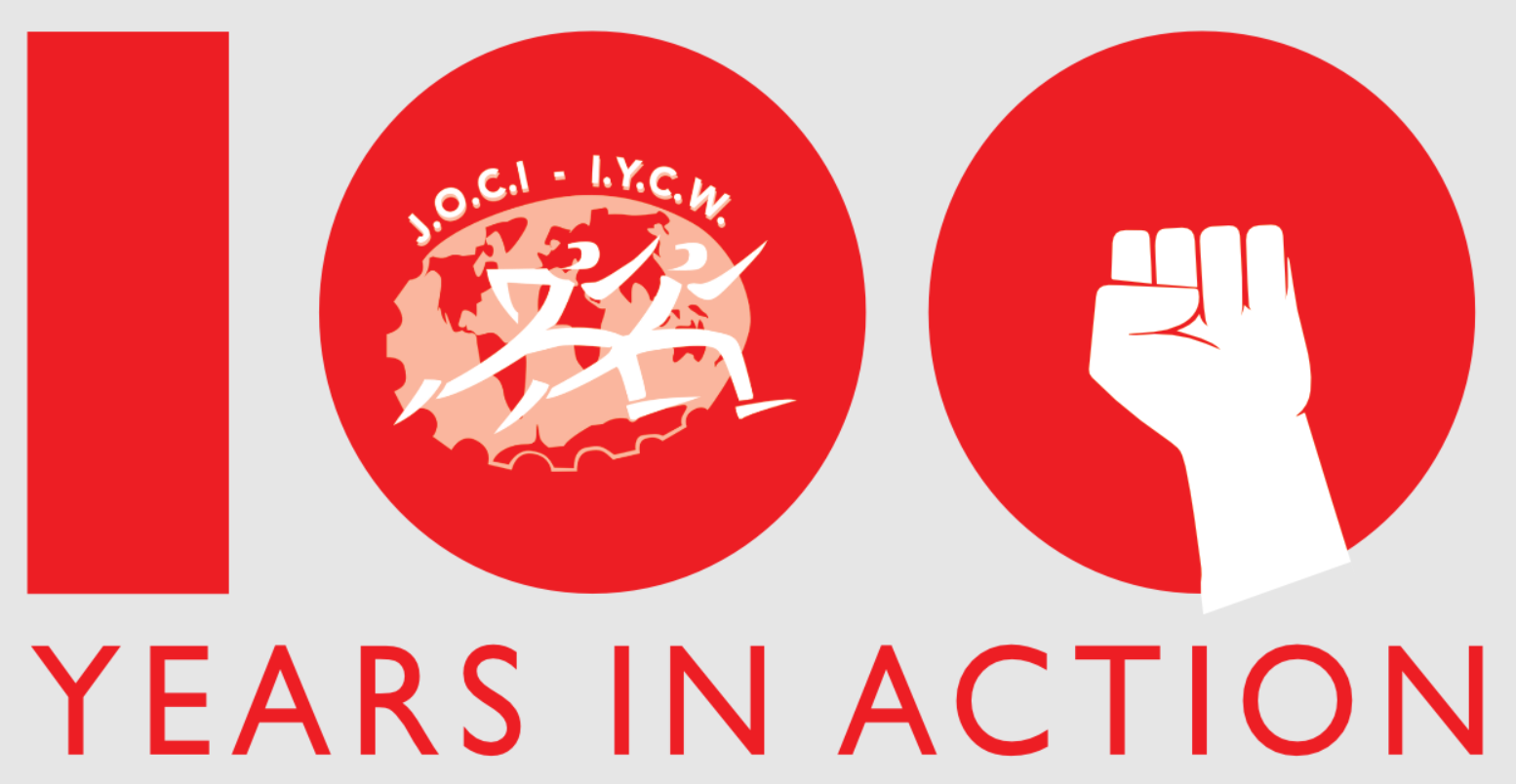
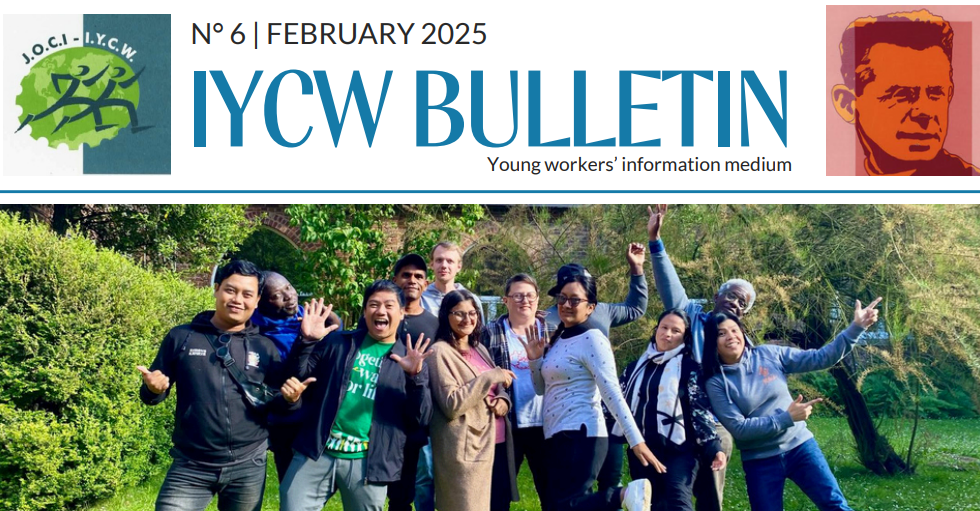

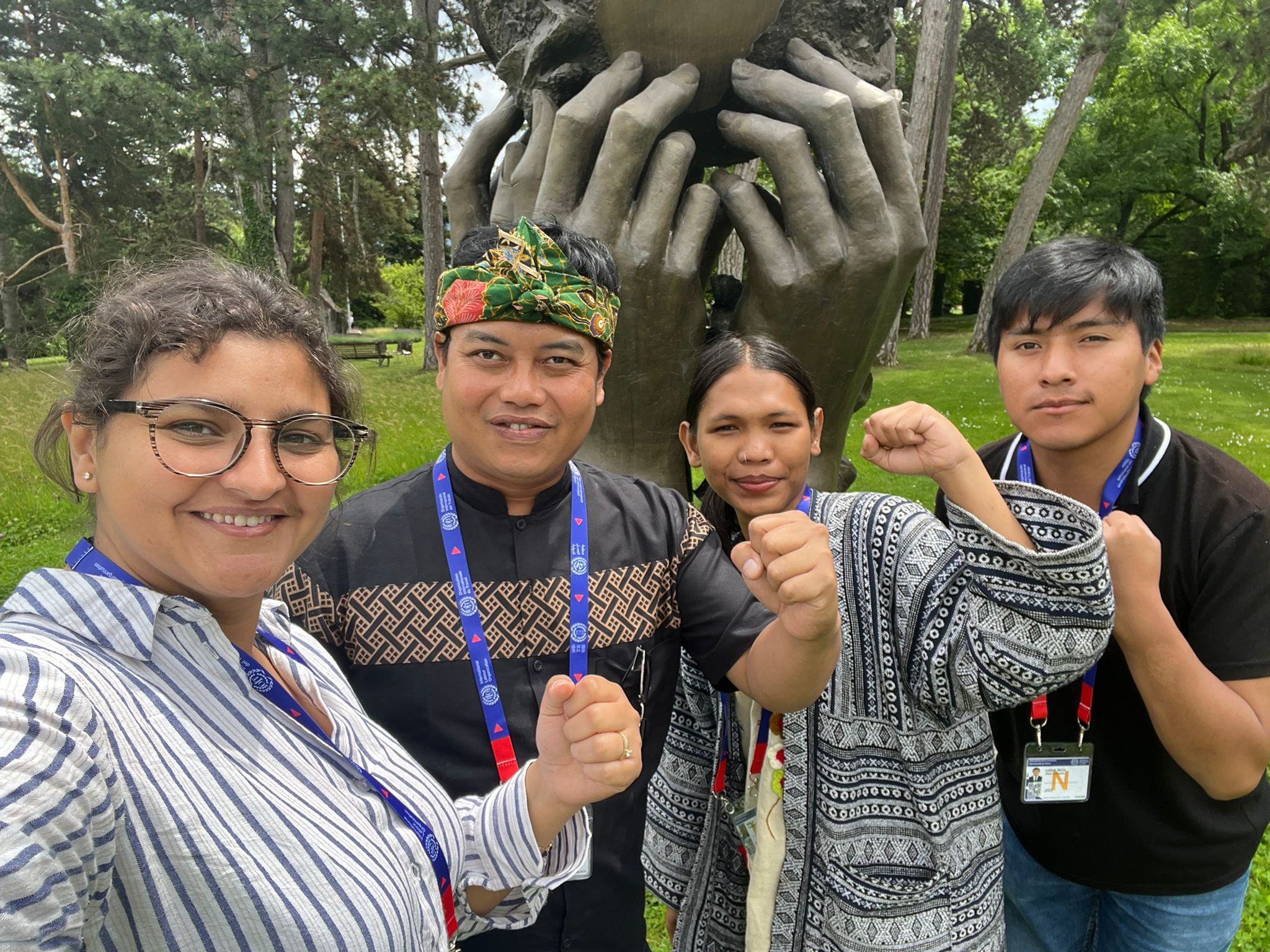
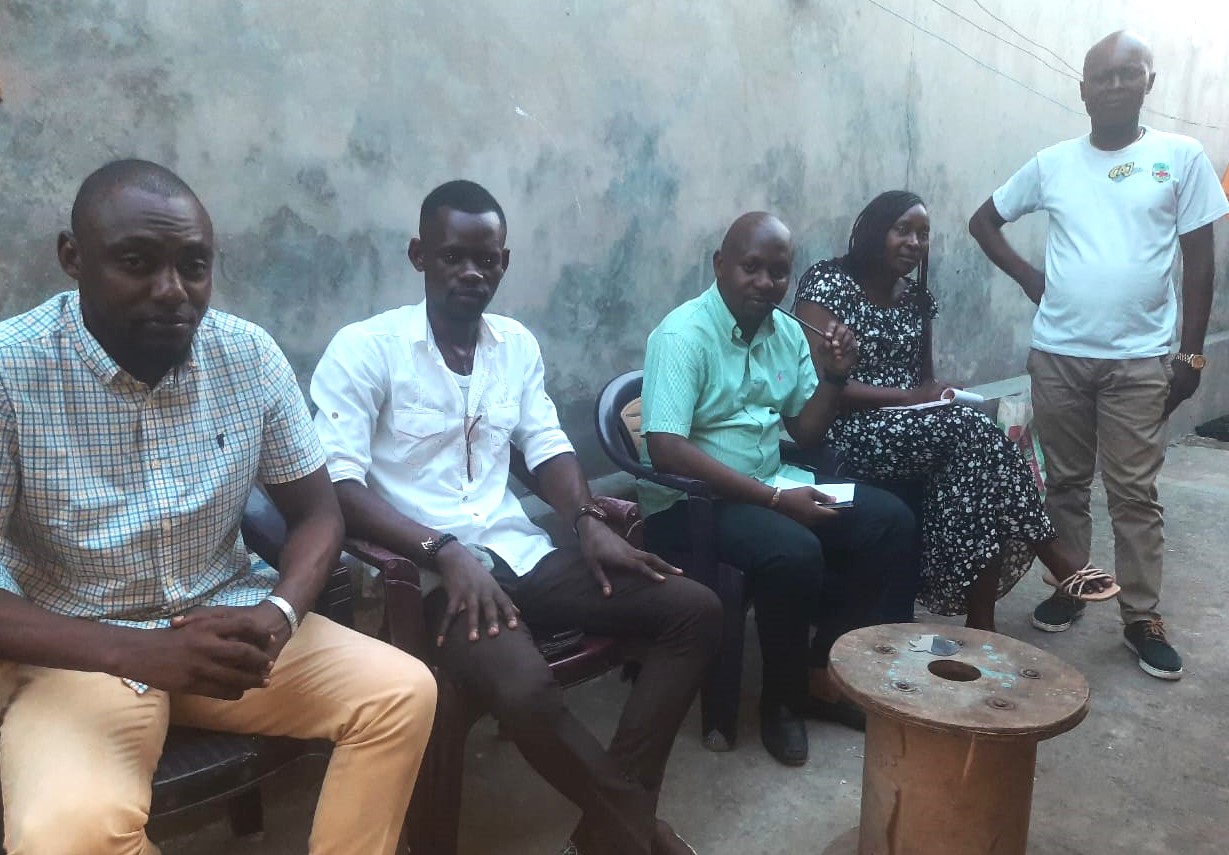

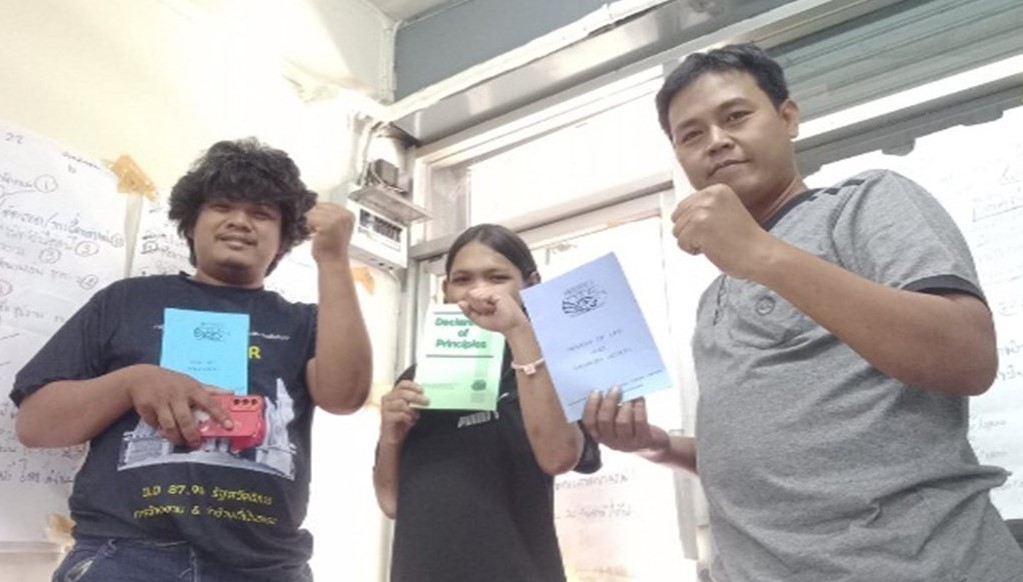
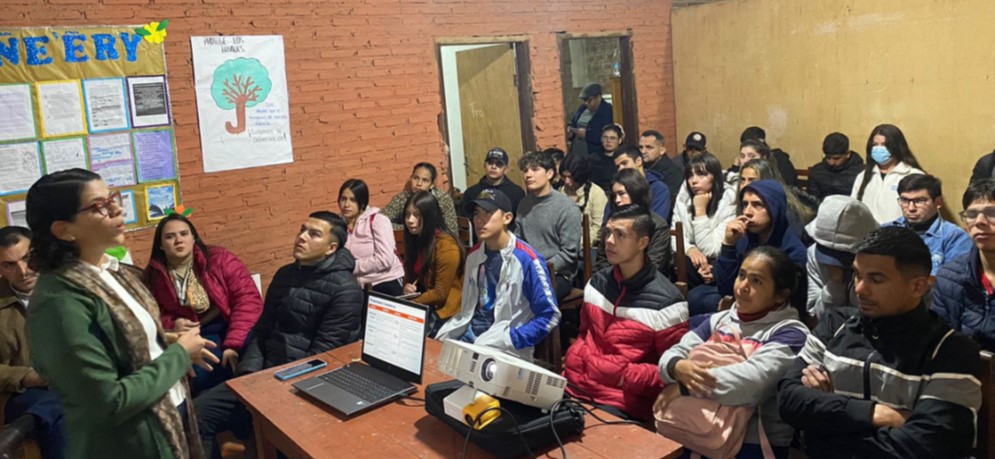


 English
English  Español
Español  Français
Français